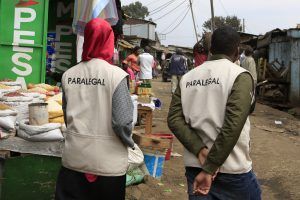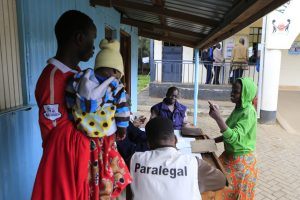Lessons from Reformers: Legal Aid
These case studies are featured in OGP’s Justice Policy Series, Part II: Open Justice paper. Read it here.
 Justice Policy Series, Part II: Open Justice Explore how applying the principles of open government can create fairer and more effective justiceTo address barriers that prevent citizens from having their justice needs met, OGP participating governments are working to expand transparency, accountability, and inclusion into all systems of justi... systems.
Justice Policy Series, Part II: Open Justice Explore how applying the principles of open government can create fairer and more effective justiceTo address barriers that prevent citizens from having their justice needs met, OGP participating governments are working to expand transparency, accountability, and inclusion into all systems of justi... systems.
Indonesia’s effort to increase the availability and quality of legal aidMore and better information about aid helps partner countries and donor institutions plan and manage aid resources more effectively, parliaments and civil society to hold governments accountable for t...
The Indonesian Legal Aid Foundation (“ILAF”) has been providing legal aid in Jakarta since the 1970s. Their services increased dramatically in the 1980s with assisting clients who were not only poor but also marginalized and oppressed.[92] The ILAF’s services include litigation, educationAccountability within the public education system is key to improving outcomes and attainment, and accountability is nearly impossible without transparent policies and opportunities for participation ... and empowerment of community members, research, and policy advocacy. In recent years, ILAF has received support from the Open Society Foundations to enhance its provision of legal aid. In 2018, Indonesia committed to creating regulations that guarantee funding for legal aid organizations, allowing them to expand their reach to more remote and impoverished communities while simultaneously strengthening the awareness and legal capacity of individuals who are poor and marginalized.
United States’ efforts to develop national-level indicators on Sustainable Development Goal 16.3
In June 2016, the United States committed to developing national-level indicators on Sustainable Development Goal (SDG) 16.3 (the call to ensure equal access to justice) through a working group connected to the White House Legal Aid Interagency Roundtable (which was a separate OGP access to justice commitment[93]) to discuss data collection on access to justice and legal aid, including its impact on federal programs that advance efforts to promote access to health and housing, education and employment, family stability, and public safety. The working group was tasked with assisting the US government in identifying and developing national-level indicators to track achieving Goal 16, the SDG to promote the rule of law and ensure equal access to justice for all. The activities of the working group are summarized in this factsheet.[94]
OTHER OGP COMMITMENTS
- Burkina Faso: Increase the availability of legal aid for vulnerable community members (2017-2019).
- Colombia: Launch a web portal and mobile application called LegalApp to facilitate public access to information on justice services (2015-2017).
- North Macedonia: Establish four access-to-justice centers to provide free legal aid to marginalized communities (2018-2020).
- Sierra Leone: Expand community-based justice services and increase transparency in local-level structures (2019-2021).
- South Africa: Integrate and strengthen Community Advice Offices as a grassroots and permanent part of the wider justice system (2016-2018).
Featured Photo Credit: Aubrey Wade/Namati
No comments yet
Related Content

Justice Policy Series, Part I: Access to Justice
Explore how justice reformers can better connect with OGP and its processes as a strategy to implement change.

Justice Policy Series, Part II: Open Justice
Explore how applying the principles of open government can create fairer and more effective justice systems.


Leave a Reply